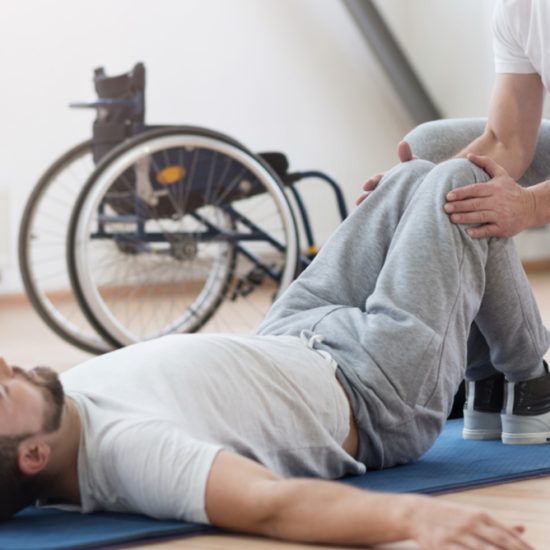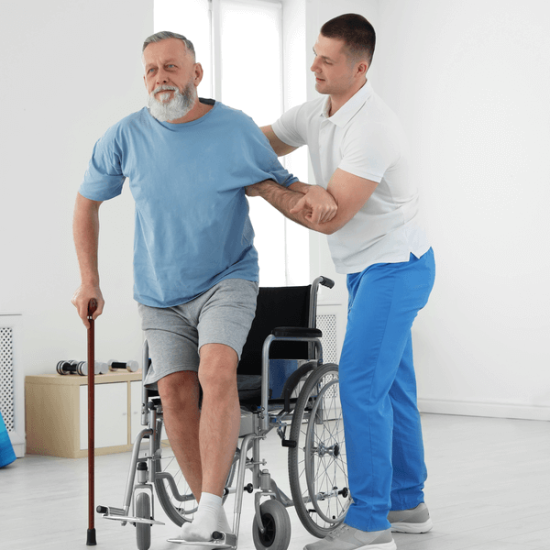
Neuro Rehabilitation
Neurorehabilitation, often referred to as neurological rehabilitation, is a specialized area of healthcare that focuses on the assessment and treatment of individuals with neurological conditions or injuries that affect the nervous system. The goal of neurorehabilitation is to help patients maximize their functional independence, improve their quality of life, and regain lost skills or adapt to new ways of performing daily activities. Here are key aspects of neurology rehab:
- Multidisciplinary Approach
- Patient Assessment
- Neurological Conditions
- Treatment Modalities
- Physical Rehabilitation
- Occupational Rehabilitation
- Speech and Language Therapy
- Cognitive Rehabilitation
- Home-Based Rehabilitation
- Psychotherapy and Counseling
Services Under Neuro Rehabilitation
Neurology rehabilitation services encompass a range of specialized healthcare services and interventions designed to assess, treat, and support individuals who have neurological conditions or injuries affecting the nervous system.
Physical Therapy (PT): Physical therapists work with patients to improve mobility, balance, strength, and coordination. They design exercise programs, provide gait training, and may use adaptive equipment to enhance physical function.
Occupational Therapy (OT): Occupational therapists focus on helping patients regain the ability to perform activities of daily living (ADLs). They provide training in dressing, bathing, cooking, and other essential tasks, often utilizing adaptive techniques and assistive devices.
Speech and Language Therapy: Speech-language pathologists address speech, language, and swallowing difficulties that may result from neurological conditions. Therapy may include communication exercises, dietary modifications, and swallowing assessments.
Cognitive Rehabilitation: Neuropsychologists and therapists provide cognitive rehabilitation to address cognitive deficits, including memory problems, attention issues, problem-solving difficulties, and executive function impairments
Physical Therapy (PT): Physical therapists work with patients to improve mobility, balance, strength, and coordination. They design exercise programs, provide gait training, and may use adaptive equipment to enhance physical function.
Occupational Therapy (OT): Occupational therapists focus on helping patients regain the ability to perform activities of daily living (ADLs). They provide training in dressing, bathing, cooking, and other essential tasks, often utilizing adaptive techniques and assistive devices.
Speech and Language Therapy: Speech-language pathologists address speech, language, and swallowing difficulties that may result from neurological conditions. Therapy may include communication exercises, dietary modifications, and swallowing assessments.
Cognitive Rehabilitation: Neuropsychologists and therapists provide cognitive rehabilitation to address cognitive deficits, including memory problems, attention issues, problem-solving difficulties, and executive function impairments


Health Tips & Info
Neuro rehabilitation is a dynamic and evolving field that adapts to the unique needs of each patient. It aims to optimize recovery, reduce disability, and enhance the overall well-being of individuals affected by neurological conditions or injuries. Treatment plans are highly individualized, focusing on the specific challenges and goals of the patient.
What can I do to improve my mobility after a neurological injury or condition?
Physical therapy exercises and mobility training are essential. Follow your therapist’s recommendations and maintain consistency in your exercises to regain and improve your mobility.
How can I address spasticity or muscle stiffness after a neurological injury?
Work closely with your healthcare team to manage spasticity. Treatments may include physical therapy, medications, and, in some cases, botulinum toxin injections or surgical interventions.
How can I stay motivated throughout my neurorehabilitation journey?
Set realistic goals, celebrate small achievements, and maintain a positive outlook. Stay connected with supportive friends and family, and consider joining a rehabilitation support network.
What strategies can help with pain management during neurorehabilitation?
Discuss pain management options with your healthcare team. This may include medications, physical therapy modalities, or complementary therapies like acupuncture or massage.
